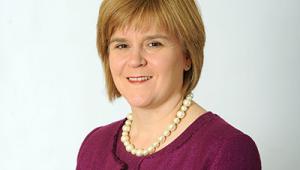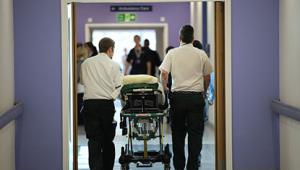The Government Expenditure & Revenue Scotland report, published this morning, show revenues from Scotland at £53.7bn, against total public spending north of the border of £68.6bn. The key element was a massive slump of 97% – from £1.8bn to £60m – in Scotland’s notional share of North Sea oil and gas revenues.
These funds have, for the past three decades, allowed Scotland to claim that it is contributing more in notional taxes to the UK than it receives in public spending.
When including a geographical share of North Sea revenues, Scotland had a deficit of £14.8bn in 2015-16, slightly up from £14.3bn in 2014/15. This is because tax revenues from onshore activity had risen by £1.9bn, more than offsetting the fall in oil receipts.
As a percentage of GDP, the 2015-16 deficit was 9.5%, against a comparable UK figure of 5.5%.
The Conservatives said that the higher deficit in Scotland amounted to a £1,600-per-person Union dividend, proving that Scotland’s economy is protected by membership of the UK. Scottish secretary David Mundell said Scotland had been able to weather the oil price drop “because we are part of a United Kingdom that has at its heart a system for pooling and sharing resources.”
But Scotland’s First Minister, Nicola Sturgeon, argued that the figures showed Scotland’s economy to be fundamentally strong, highlighting the rise in revenues from onshore activity.
Referring back to Scottish Government figures that attempted to quantify the economic impact on Scotland of Brexit, Sturgeon said: “If we were to allow Scotland to be forced out of the EU against our democratic will then we will see Scotland’s economy as a whole take a hit worth up to £11.2bn per year by 2030.”
Scottish finance secretary Derek Mackay added: “It is important to note that GERS represents Scotland’s fiscal position under current constitutional arrangements. The position if Scotland was to become independent would depend on a range of factors which are not reflected in this publication.”
The comments are bound to fuel speculation that Sturgeon is increasingly persuaded of the case for a second independence referendum – known as IndyRef2 - as the only way to enforce Scotland’s 62% vote at June’s European referendum in favour of remaining in the EU. There are reports this morning that legislation could be published within coming weeks.
Meanwhile the Scottish Greens had a different take on the oil revenues slump. Co-convenor Patrick Harvie said: “The figures show what has been clear for years – that a strong future for Scotland’s economy will depend on ending our reliance on oil and gas, and investing in the industries of the 21st century instead.”




















